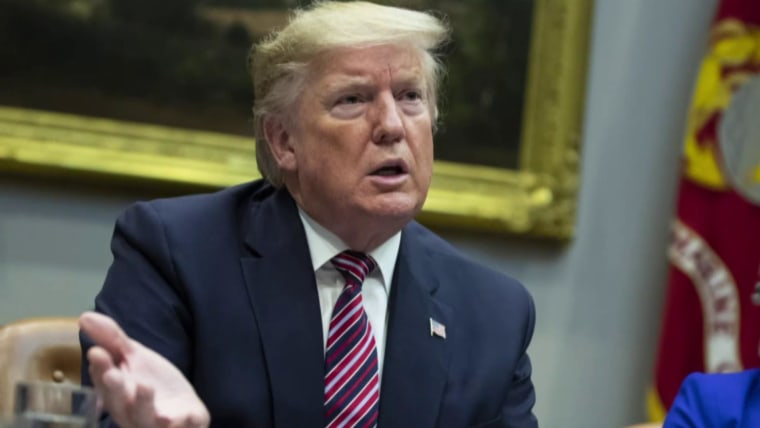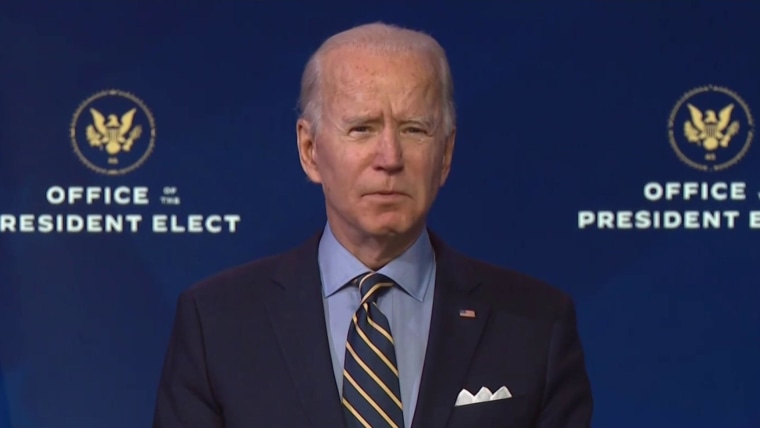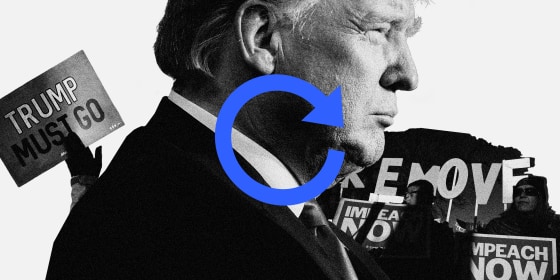President Donald Trump is leaving the White House in January, and he seems determined to exploit and abuse every power of the presidency he can on his way out.
The clemency he offered up recently for convicted war criminals, corrupt former members of Congress and members of his extended family were bad enough. But most disturbing were his pardons of his political allies Paul Manafort and Roger Stone, both of whom were convicted as a result of Robert Mueller's Russia investigation.
Once seated, the next Congress should immediately begin the second impeachment of President Donald Trump for abuse of power and obstruction of justice. I don't mean this as a symbolic gesture. If it is kicked off in 2021, the impeachment process may — just may — be able to prevent Trump from running for office again in 2024.
Once seated, the next Congress should immediately begin the second impeachment of President Donald Trump.
A House panel could make short work of the investigation, given the ample evidence gathered in both Mueller's investigation and the Senate Intelligence Committee's investigation into the 2016 election, which concluded this year. Mueller's report listed 10 instances that might qualify as obstruction of justice, one of the generally agreed-upon high crimes and misdemeanors that can get a president impeached. That included, as it turns out, dangling pardons in front of potential witnesses.
Mueller believed he was unable to charge Trump as a sitting president — but he strongly hinted that Congress should look into his findings. "The Constitution requires a process other than the criminal justice system to formally accuse a sitting president of wrongdoing," Mueller nudged Congress in May 2019.

His team did charge Stone and Manafort, though. Its investigation looked into Stone's connection to the Russian hack of the Democratic National Committee, finding that he was in contact with the invented online persona that claimed credit for the email theft. Stone also had inside information about WikiLeaks' publishing schedule. He was convicted last year of seven charges, including witness tampering and making false statements.
Meanwhile, the Republican-led Senate panel's report found that Manafort, while chair of the Trump campaign, provided a Russian intelligence asset with internal information. The polling data and strategies Manafort shared are likely to have been used in the Russian influence campaign that helped swing the election to Trump. Manafort was jailed on tax-related charges in 2018.
Trump's pardons of Stone and Manafort are clear rewards for their loyalty.
Trump's behavior toward the people in his orbit under investigation is clear. Compare his praise for Stone with his exile of his former lawyer Michael Cohen for his perceived betrayal. His pardons of Stone and Manafort are clear rewards for their loyalty.
The presidential pardon power is near absolute. But in the event of its abuse, one of the few options provided to counter it would be impeachment, Chief Justice William Howard Taft once suggested. I argued just a few weeks ago that it's too late for that — but I'm not so sure anymore.
Let's say the House opens an impeachment inquiry in the early days of the new Congress, before Trump leaves office. And say this investigation lasts beyond Trump's term. It will be months into President Joe Biden's time in office before articles of impeachment are filed and voted on. But wouldn't that then make the impeachment moot, because removal from office is no longer the punishment?
Maybe not. Under the Constitution, the possible punishments for an impeached official are limited to two: removal and disqualification from ever holding office again. No monetary fines, no jail time; political crimes are met with political repercussions.

The bar for conviction in a Senate impeachment trial is high — two-thirds of all senators present have to find the official guilty. None of the three presidents who have been impeached were convicted. In the most recent cases, those of Trump and Bill Clinton, the votes were mostly partisan affairs. At least part of this was due to hesitance from fellow party members to cut a president's term short — there might still have been benefits to letting the defendant's agenda play out.
Here's where things get interesting and kind of wonky: Removal from office is the default consequence of being found guilty, to the point that the Senate long ago stopped voting on it separately from conviction. Barring the guilty party from returning to the federal government has been less of a given.
In some cases, the Senate has opted to impose both punishments. In others, the articles of impeachment presented by the House have called only for removal — that's why Alcee Hastings, who was removed from his federal judgeship, can now have a seat in the House.
In one of its early impeachment trials, which considered the fate of federal Judge West H. Humphreys in 1862, the Senate held that removal and disqualification can be voted on separately — the two punishments aren't necessarily linked. And, as Brian Kalt, a professor at Michigan State University Law School, noted in a 2001 Texas Review of Law and Politics essay, while rare, there have been before the United States was founded a few British and Colonial officers were impeached after they had left office.
Taken together, this suggests that not only can the House pass articles of impeachment against Trump once his term expires, but that these articles can also be drafted to seek only to block Trump from running for office again.
The same number of senators would need to find Trump guilty in this scenario. If the Senate chooses, though, it could return to holding a separate vote on sentencing after the vote to convict or acquit. And according to precedent set in 1912, there needs to be only a majority vote to approve disqualification.
Imagine: Trump is an ex-president, out of power, no longer any immediate assistance to the Republicans still in Congress. In hinting at a Grover Cleveland-esque bid to reclaim the White House, he's blocking several GOP presidential hopefuls in the Senate from gearing up to run in 2024. If you’re facing the prospect of issuing a belated mea culpa ahead of entering the race, getting to say “actually, it turns out this behavior was all bad,” but still avoid having to be one of the votes to kneecap Trump’s political future? Seems like a pretty good bargain for the a chunk of the Senate Republican caucus.
Biden won't order the Justice Department to investigate Trump's actions, but the House has already said it plans to continue its reckoning with the Trump administration's misdeeds. It makes sense that Trump's final actions in office be adjudicated, as well. It would be fitting if these last-minute offenses were what keeps him from ever gaining power again.CLARIFICATION (Jan. 4, 2021, 4:55 p.m. ET): A previous version of this article stated that, while rare, "federal officials" had been impeached after leaving office. Before the United States was founded, a few British and colonial officers were impeached after leaving office, according to Brian Kalt, a law professor at Michigan State University.

